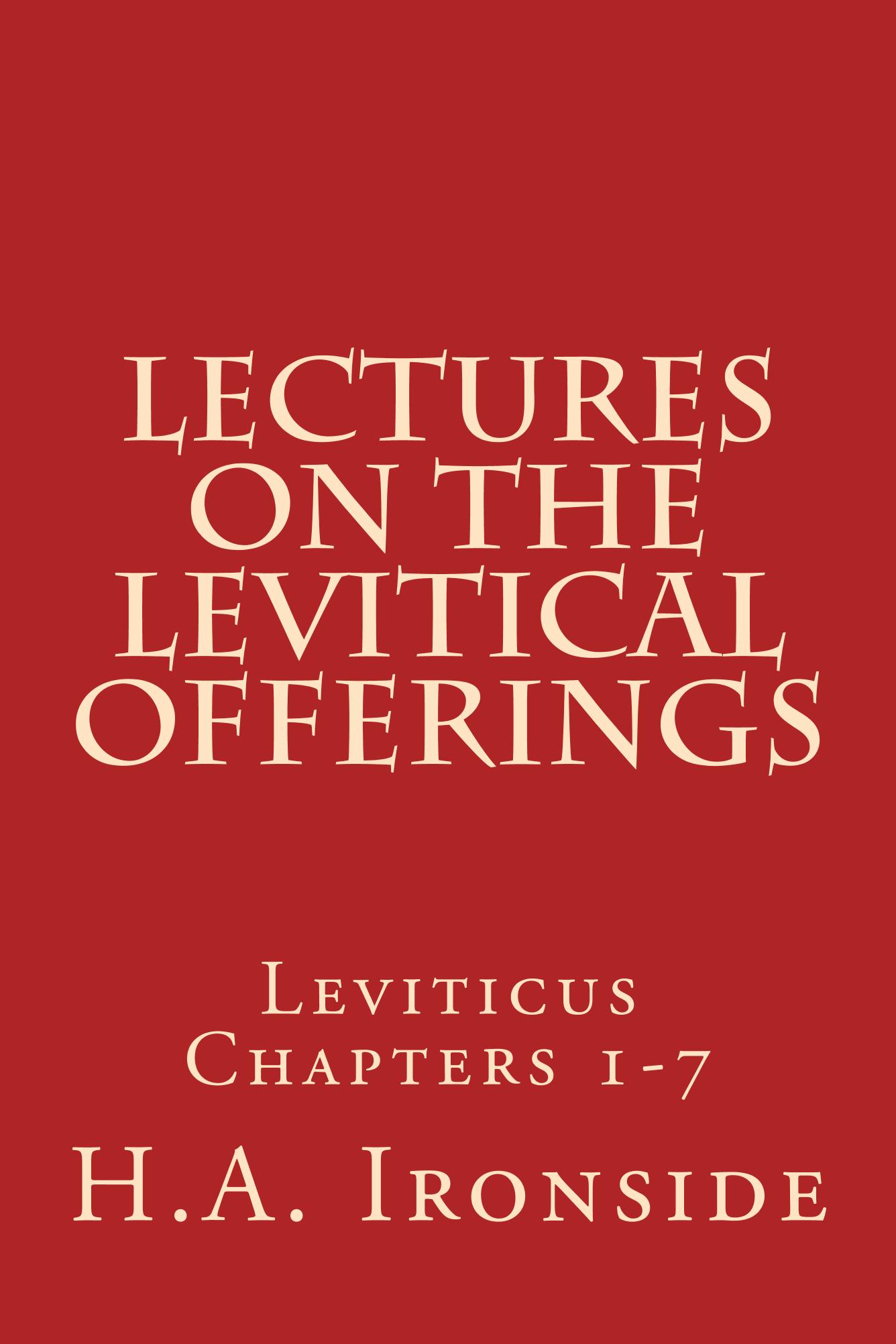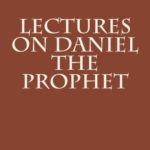Description
Lectures On The Levitical Offerings
Leviticus Chapters 1-7
by
H.A. Ironside
2016
Lecture I The Burnt Offering. 3
Lecture II The Meal Offering. 17
Lecture III The Peace Offering. 27
Lecture IV The Sin Offering. 39
Lecture V The Trespass Offering. 52
Lecture I The Burnt Offering
Read carefully Leviticus, chapters 1; 6:8-13; 6:7-8; 33:8-10; Psalm 40; Ephesians 5:1-2.
To many believers the theme of the burnt-offering is very familiar, but there are large numbers of God’s beloved people who have never carefully studied the marvelous types of the Person and work of Christ given us in the early chapters of Leviticus, where we have five distinct offerings, all setting forth various aspects of the work of the Cross and unfolding the glories of the Person who did that work-a Person transcending all the sons of men, for He was both Son of God and Son of Man, divinely human and humanly divine. We shall get great help for our souls if we meditate upon the marvelous pictures here given us of the great and wondrous truths which are unfolded in the New Testament. In coming to the study of the types, we should never found doctrines upon them, but discovering the doctrines in the New Testament, we will find them illustrated in the types of the Old.
The five offerings may be divided in various ways. First we notice that four of them are offerings involving the shedding of blood-the Burnt offering, the Peace offering, the Sin offering, and the Trespass offering. The Meat offering, or, as it should read, the Meal offering or Food offering, was an unbloody offering, and stands in a place by itself. Then again there are sweet savor offerings as distinguished from offerings for sin. The burnt offering, the meal offering and the peace offering are all said to be “for a sweet savor unto the Lord.” This was never true of the sin offering or the trespass offering. The divine reason for this distinction will come out clearly, I trust, as we go on.
The five offerings which are here grouped together present to us a marvelous many-sided picture of the Person and work of our blessed Lord Jesus Christ. They show what He is to God, as well as what He has become in grace to sinners for whom He died, and to those who have trusted Him and now stand before God accepted in the Beloved. If there be details, as many there are, which are difficult for us to understand, these should but give occasion for exercise of heart before God and for meditation and prayer. We may be sure of this, that the better acquainted we become with our Saviour and the more we enter into what the Word of God elsewhere reveals as to the details of His work upon the cross, the more readily we shall understand the types.
As we get them here in the first seven chapters of Leviticus we see things from the divine standpoint, that is, God gives us that which means most to Him first; so that we begin with the burnt offering, which is the highest type of the work of the Cross that we have in the Mosaic economy, and we go on down through the meal offering, the peace offering, and the sin offering, to the trespass offering, which is the first aspect of the work of Christ generally apprehended by our souls.
As a rule when a guilty sinner comes to God for salvation he thinks of his own wrong-doing, and the question that arises in his soul is, “How can God forgive my sins and receive me to Himself in peace when I am so conscious of my own trespasses?”
Most of us remember when the grace of God first reached our hearts. We were troubled about our sins which had put us at such a distance from God, and the great questions that exercised us were these: How can our sins be put away? How can we be freed from this sense of guilt? How can we ever feel at home with God when we know we have so grievously trespassed against Him and so wantonly violated His holy law? We shall never forget, many of us, how we were brought to see that what we could never do ourselves, God had done for us through the work of our Lord Jesus on the cross. We remember when we sang with exultation:
“All my iniquities on Him were laid,
All my indebtedness by Him was paid,
All who believe on Him, the Lord hath said,
Have everlasting life.”
This is the truth of the trespass offering, in which sin assumes the aspect of a debt needing to be discharged.
But as we went on we began to get a little higher view of the work of the cross. We saw that sin was not only a debt requiring settlement, but that it was something which in itself was defiling and unclean, something that rendered us utterly unfit for companionship with God, the infinitely Holy One. And little by little the Spirit of God opened up another aspect of the atonement and we saw that our blessed Lord not only made expiation for all our guiltiness but for all our defilement too. “For God hath made Him to be sin for us, who knew no sin, that we might become the righteousness of God in Him.” It was a wondrous moment in the history of our souls when we saw that we were saved eternally, and made fit for God’s presence because the Holy One had become the great sin offering, was made sin for us on Calvary’s cross.
But there were other lessons we had to learn. We soon saw that because of their sins men are at enmity with God, that there could be no communion with God until a righteous basis for fellowship was procured. Something had to take place before God and man could meet together in perfect enjoyment and happy complacency. And thus we began to enter into the peace offering aspect of the work of Christ. We saw that it was God’s desire to bring us into fellowship with Himself, and this could only be as redeemed sinners who had been reconciled to God through the death of our Lord Jesus.
As we learned to value more the work the Saviour did, we found ourselves increasingly occupied with the Person who did that work. In the beginning it was the value of the blood that gave us peace in regard to our sin, but after we went on we learned to enjoy Him for what He is in Himself. And this is the meal offering; for it is here that we see Christ in all His perfection, God and Man in one glorious Person, and our hearts become ravished with His beauty and we feed with delight upon Himself.
We can understand now what the poetess meant when she sang:
“They speak to me of music rare,
Of anthems soft and low,
Of harps, and viols, and angel-choirs,
All these I can forego;
But the music of the Shepherd’s voice
That won my wayward heart
Is the only strain I ever heard
With which I cannot part.”
“For, ah, the Master is so fair,
His smile’s so sweet to banished men,
That they who meet Him unaware
Can never rest on earth again.
And they who see Him risen afar
At-God’s right hand, to welcome them,
Forgetful are of home and land,
Desiring fair Jerusalem.”
To the cold formalist all this seems mystical and extravagant, but to the true lover of Christ it is the soberest reality.





Reviews
There are no reviews yet.